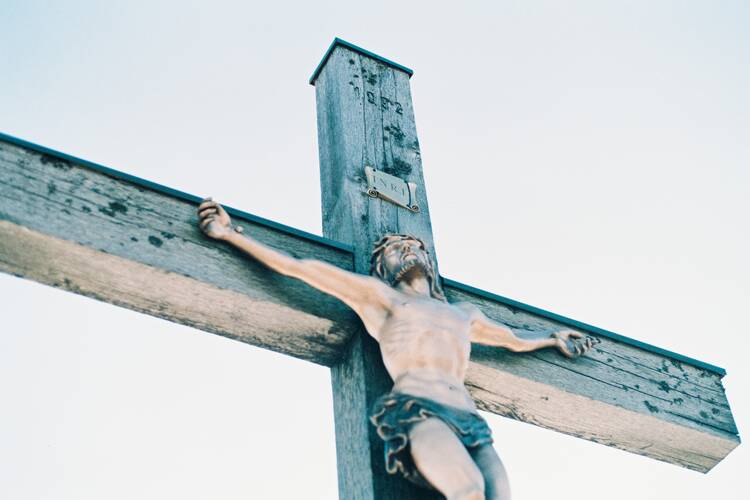A Reflection for the Wednesday of Holy Week
Find today’s readings here.
When it was evening,
he reclined at table with the Twelve.
And while they were eating, he said,
"Amen, I say to you, one of you will betray me." (Mt. 26:20-21)
In true Ignatian fashion, I approached this passage by considering it from the perspective of Jesus, the person. The human. I tried to imagine his train of thought as he sat with one of his twelve closest friends, whom he knew had just betrayed him. Jesus must have been thinking of the brutal pain and humiliation of the crucifixion. He knew how much anguish lay just ahead, all the gory details. And he was faced with a choice.
The question looming over Jesus during this episode is one which has consumed generations of storytellers. It is a central question of Virgil’s Aeneid, in which the title character and father of Rome gives up everything he cares about—his wife, his homeland, the safety and comfort he occasionally found along his journey—pursuing a promise of something greater to come.
It is also a central question of an incredible movie called “Arrival,” a science fiction film from 2016. At the end of the movie, one of the main characters, armed with foreknowledge of the tragedy that will strike their own life, still chooses to set down that path and experience the joy that accompanies it.
Jesus must have been thinking of the brutal pain and humiliation of the crucifixion. He knew how much anguish lay just ahead, all the gory details. And he was faced with a choice.
These two stories, separated by two millennia of literature, capture a crucial element of the Passion narrative. Even though the suffering that befalls them is always meant to befall them—due to fate in the Aeneid, due to the nature of spacetime in “Arrival”—the characters are not prisoners robbed of their free will. They each face moments like Jesus does at the Last Supper. They can choose the alternative and let fear drive them away from their fullest potential. But they don’t.
Neither the Aeneid nor “Arrival” is a Christian story, and I think that speaks to something innate inside of humans. No matter our faith or spiritual tradition, we understand that the roads meant for us involve pain and sacrifice, and we long to step up to those roads anyway. We believe that something amazing can grow from the seeds of our sacrifice, in our lifetimes or perhaps afterwards.
Will we succeed and follow through at every single one of these crisis points, as Jesus did in the Garden of Gethsemane? Almost certainly not. But the Christian response is to try again, to accept the pain with the promises as often as we can and to forgive ourselves when we fail. And Easter serves as a reminder of the jubilation of victory to come.







